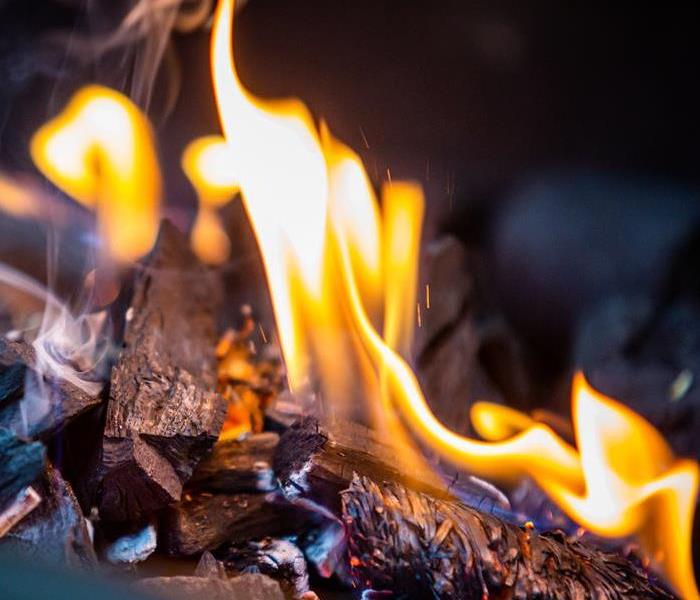The Dangers of Gardening
5/28/2021 (Permalink)
If you are an avid gardener, you know how beneficial mulch can be to your plants. It suppresses weeds, aids in preventing erosion, spontaneously combusts, holds in moisture, and adds nutrients to the soil. Wait, did that say spontaneously combusts? It sure did! Lucky for you, there are ways to prevent this from happening. We have compiled a list of 5 simple steps that you can take to prevent garden fires.
Don’t Pile it High
Many homeowners and groundskeepers enjoy the aesthetics of a thick layer of mulch. However, that is where the danger lies. NBCWashington.com interviewed Chief Fire Marshell Linda Hale she explained, “Spontaneous combustion can happen when a decomposing, organic material such as mulch generates enough heat to ignite without an outside source." Because of the heat produced from decomposing mulch, it is recommended that you don’t go over 3 inches. This will reduce the risk of combustion and give less fuel to the fire if it does spontaneously combust.
Include Inorganic Mulch in Your Garden bed
Cincinnati Insurance Company defines the difference between organic and inorganic mulches.
Most organic mulches come from plant materials such as pine needles, wheat straw, pine bark nuggets, shredded cedar and redwood bark, or wood chips from recycled pallets. Ground and shredded rubber are also considered organic mulches. Inorganic mulches, usually derived from non-plant materials, include rock, gravel, or brick chips.
Inorganic mulch might not give the nutrients to the soil like organic mulch but, it can help in many of the same ways organic materials can.
Keep Space Between Your Building and Mulch
Because of its combustible properties, it is not recommended to mulch right up against your structure. Some states legally require 5 feet distance between your building and mulch. To fill up this space use inorganic mulch like rock or gravel. Residential properties are not legally obligated to uphold this but, it is highly recommended for the homeowner’s safety.
Keep the Mulch Damp
Spontaneous combustion can happen any time of the year. It’s more likely in the middle of summer when the air is dry because it hasn’t rained and winds are high. Paying attention to these weather patterns and keeping the mulch moist can prevent fire damage. Statistically, mulch fires happen during the afternoon when the day is the hottest. Consider watering in the morning. This helps prevent evaporation and keeps the ground cooler in the afternoon.
Keep Mulch Away From Open Flames
In the past, we’ve discussed safety precautions with open flames. Ideally, your grills and campfires are a minimum of 20 feet away from any structure. Keep this distance with mulch too. The dangers are the same. Embers can pop out of the fire and cause damage, or; the fire can get out of control for a myriad of other reasons.
If you are a business owner, make sure that you have a cigarette receptacle. This will discourage people from just throwing cigarette butts into the mulched area. This is good advice to heed if you are a smoker and a property owner yourself. Never throw a lit cigarette onto these wood or rubber chips.
Fire damage from spontaneous combustion and human error could happen at any moment. We have seen it and helped our fair share of clients through it. Should this unfortunate phenomenon happen to you do not hesitate to call our offices at (513) 693-2541.

 24/7 Emergency Service
24/7 Emergency Service
